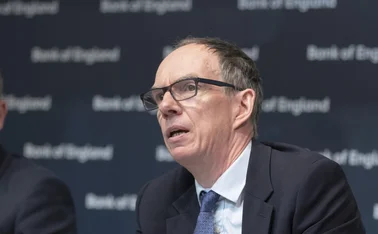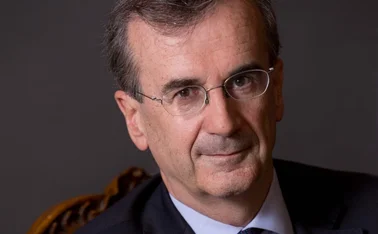
Hanke attacks Fed at IEA seminar
After telling his audience that the history of monetary policy is mainly written by people "on the payroll" like central bankers and former central bankers, so usually making them look good, he called for an end to this "cartel". Turning to Alan Greenspan's memoirs, 'The Age of Turbulence', Hanke said that the central 400 pages of the book can be summed up in one sentence: "During my time as chairman, the Fed got it largely right" in its major monetary policy decisions. On the contrary, argued Hanke, the Fed largely got it wrong. An average of 2.5% annual inflation during those 18 years meant that the price level in the US rose by 1.6 times, cutting the real purchasing power of the dollar by 30%.
Calling his talk "A bubble too far", Hanke said that the period was characterised by three major bubbles in domestic demand - each of which was caused mainly by huge liquidity injections by the Federal Reserve. The Fed panicked on three successive occasions - in 1988-89 following the stock market crash of 1987, in 2000-2001, caused by their panicky response to the financial crisis of 1997 and 1998, and again after the "false" deflation scare of 2001-2002 which provoked the famous Bernanke speech of 21 November 2002 called: "Deflation: Making sure "it" doesn't happen here". In 2003 Fed panic drove the federal funds rate down to 1%, inducing investors the world over to chase yield. In fact this deflation scare was purely hypothetical - there was no actual deflation.
As a result of three successive bubbles, inflation expectations are now coming close to losing their "anchor". US tradable prices are already rising at close to 7% a year, with core CPI at 2.5% and rising.
Again, the Fed is now frantically loosening policy and injecting liquidity, just as the Bank of Japan did in the 1990s, but as in Japan's case it is questionable whether banks will in fact respond by increasing lending - they are much more likely to go on buying government debt.
Hanke's solution was to forget inflation targeting, and move to a regime where monetary policy is dedicated to ensuring stable nominal demand growth.
Only users who have a paid subscription or are part of a corporate subscription are able to print or copy content.
To access these options, along with all other subscription benefits, please contact info@centralbanking.com or view our subscription options here: http://subscriptions.centralbanking.com/subscribe
You are currently unable to print this content. Please contact info@centralbanking.com to find out more.
You are currently unable to copy this content. Please contact info@centralbanking.com to find out more.
Copyright Infopro Digital Limited. All rights reserved.
You may share this content using our article tools. Printing this content is for the sole use of the Authorised User (named subscriber), as outlined in our terms and conditions - https://www.infopro-insight.com/terms-conditions/insight-subscriptions/
If you would like to purchase additional rights please email info@centralbanking.com
Copyright Infopro Digital Limited. All rights reserved.
You may share this content using our article tools. Copying this content is for the sole use of the Authorised User (named subscriber), as outlined in our terms and conditions - https://www.infopro-insight.com/terms-conditions/insight-subscriptions/
If you would like to purchase additional rights please email info@centralbanking.com
Most read
- Taking stock of Bernanke: the original sin of forecasting
- Fed policy-makers disagree over risks
- Supervisors grapple with the smaller bank dilemma







